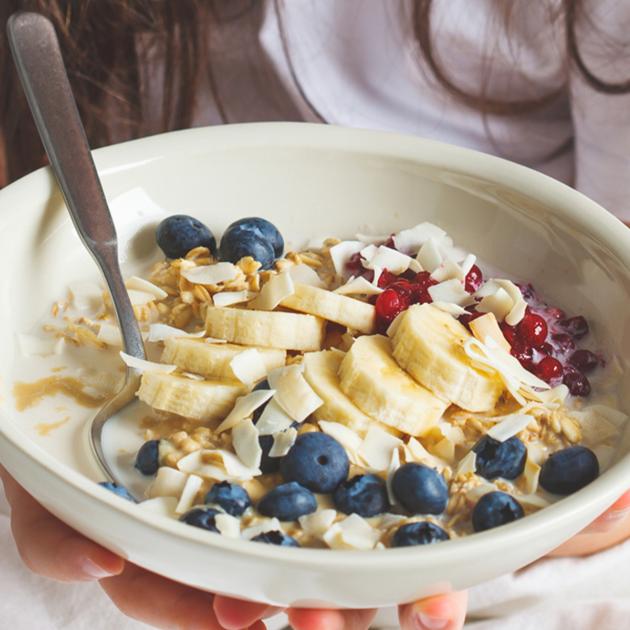
Build Strong Bones
“Both calcium and vitamin D are crucial for strong, healthy bones. Inadequate calcium intake can lead to weakened bones, setting the stage for future issues like osteoporosis. Both boys and girls need sufficient calcium, but girls should be cautious due to their higher risk. Vitamin D also builds strong bones, although teens may struggle to get enough sunlight or eat the right foods, putting them at risk of a deficiency. Dairy – milk and cheese – is the best source of calcium, but kidney beans, chickpeas, tahini, kale and cavolo nero are also good sources. If your child doesn’t drink dairy, make sure their alternative milk is fortified with calcium. Most are, and many contain added vitamin D and B12 too.”
Don’t Skip Breakfast
“In the teenage years, consuming breakfast is very important, so skipping it or any other occasional fasting is a bad idea. Studies show having breakfast improves concentration and mood, and ultimately academic outcomes. Opt for something that will release energy slowly – overnight oats and pancakes made with eggs, ground flaxseed, coconut flour, banana, cinnamon, coconut oil and milk are good choices.”
Up Her Iron Levels
“Iron is essential to produce red blood cells, but if your teenager doesn’t get enough of it, they may become anaemic, causing them to feel incredibly tired. Girls will also need extra iron to replenish what’s lost during their monthly cycle. A pale complexion, dark under-eye circles, a sore tongue, headaches or dizziness, poor concentration, breathlessness, heart palpitations, brittle nails and fatigue are all signs of an iron deficiency. Vitamin C – found in fruit, fruit juice, broccoli and red peppers – can improve the absorption of iron, so pair foods like red meat, kidney beans, nuts and dried apricots, with a source of vitamin C.”
Load Up On Healthy Fats
“Fats tend to have a bad rep, but healthy fats are an important part of a teen’s diet. They support brain health, keep the skin nourished, make sure you feel fuller for longer, are a great source of energy and help support hormone balance. In fact, did you know that if you take away the water, the dry weight of our brain is 60% fat? Plus, the brain is a very hungry organ, using more energy than any other organ in our brain. If your teenager likes fish, encourage them to eat two to three portions per week, ideally two of which should be oily fish, as well as a handful of mixed, unsalted nuts and seeds daily. Prepare some trail mix so they can carry it around to snack on; toss cashews through stir fries; add pine nuts to salads; chop any nut and use as a crust for fish; or use a nut spread on toast or as a sandwich filling.”
